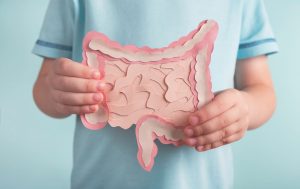
Having a rumbling tummy or an occasional stomach ache is quite common for children and teens of all ages. But when the pains and aches happen frequently, are you aware of what remedies can help? In the event your child or teenager requires pediatric digestive care in New Orleans, LA, contact our gastroenterology specialists to find a remedy. At Metropolitan Gastroenterology Associates, we have the experience and knowledge needed to provide personalized treatment options. Read on to learn further details about common childhood digestive disorders, along with a few insightful tricks and tips.
How frequently are children impacted by GI conditions?
As stated by the International Foundation for Gastrointestinal Disorders, 40 to 50% of appointments with a pediatric gastroenterologist are due to functional GI disorders. Constipation, or encopresis, arises in approximately 10 to 25% of children who are advised to visit a pediatric GI doctor, and approximately 17% of high school-age patients deal with symptoms representative of IBS (irritable bowel syndrome). Our New Orleans, LA gastroenterology specialists aim to help your family determine solutions for pediatric GI conditions.
What kinds of GI disorders are common in teens, children, and infants?
A sample of the pediatric GI disorders that are commonly identified in teenagers, children, and infants include the following:
Gastroesophageal reflux disease (GERD): Frequent heartburn in infants and children could lead to a GERD diagnosis. Common signs and symptoms are burping, lack of a desire to eat, vomiting, abdominal pain, hiccups, and choking or gagging.
Lactose intolerance: This treatable issue is among the GI disorders that can affect teens, children, and infants. It happens when a child’s body is unable to metabolize the sugar present in dairy, known as lactose. Loose or watery stools, a stomach ache, gas, or bloating after ingesting dairy products are all indications of this condition. Taking lactase enzymes before eating dairy products can allow the body to process lactose properly.
Constipation: Constipation develops when stool is dry, large, and/or difficult to pass. Among children, constipation can cause them to avoid going to the bathroom. Not having regular bowel movements could result in more constipation and additional gastrointestinal discomfort.
IBD (inflammatory bowel disease): This digestive health concern may develop in teenagers and children. It describes two individual GI conditions. Ulcerative colitis causes inflammation in the large intestine (colon) while Crohn’s disease can impact all parts of the digestive tract. Common signs and symptoms of both conditions may involve watery or bloody stool and stomach pain.
Celiac disease: Celiac disease is a digestive health issue that arises when an adverse reaction happens in the wake of ingesting gluten. Gluten is a protein present in barley, rye, and wheat. If the disease is left uncontrolled, it could damage the small intestine and prevent your child’s body from absorbing the necessary nutrients from food.
EoE (eosinophilic esophagitis): This disease develops in the esophagus. It can result in chronic allergic inflammatory disease. Kids can experience abdominal pain, nausea, vomiting, regurgitation, and a burning sensation similar to acid reflux. Additionally, they may gag frequently and report swallowing difficulties.
What can parents do to promote good digestive health in children?
We know that as a parent, you want the best for your family, from planning doctor appointments to ensuring they eat a healthy and balanced diet. Some ways to help your child maintain GI health are to incorporate these suggestions into their day-to-day life:
- Sit down as a family to eat: Strive to make mealtime pleasant for every member of your family and designate a family mealtime. Doing so provides consistency and stability, helping to ensure the time spent sharing family meals is enjoyable for all. Allowing your toddlers to feed themselves during mealtimes is also a good way to help them develop a healthy association with food.
- Monitor portion sizes: The amount of food eaten can impact how food is processed and digested. If a child eats in excess, it could cause problems with digestion and result in stomach upset.
- Slow down when eating: We understand that between after-school activities and spending time with friends, it is easy for your teen to quickly snag a snack from the pantry before heading out the door. Encourage them to take time to enjoy the food they consume to prevent digestive upset.
To learn more tips on how to help your child enjoy good GI health, request a consultation with us at Metropolitan Gastroenterology Associates. Our digestive health providers will partner with you to find an approach that meets your family’s needs and lifestyle.
Find care for pediatric digestive conditions in New Orleans, LA
Children’s gastrointestinal issues do not have to cause ongoing, unmanageable symptoms. You can access solutions for everyone in the family when GI concerns arise. For further details about the common GI issues affecting children, request a consultation at Metropolitan Gastroenterology Associates. Our gastroenterology team proudly offers pediatric digestive care in New Orleans, LA that can help your child experience optimal GI health as they grow.